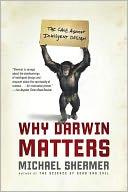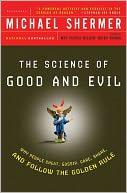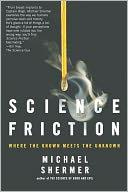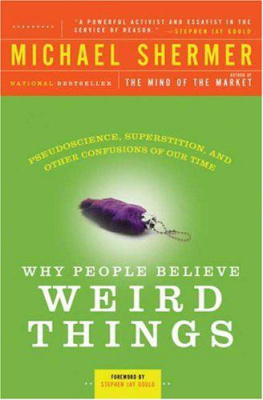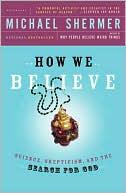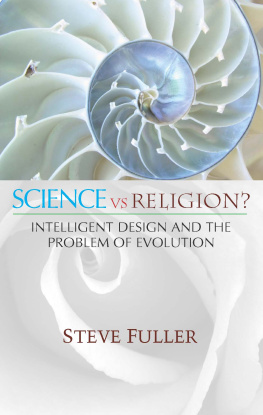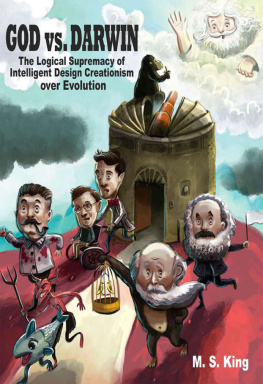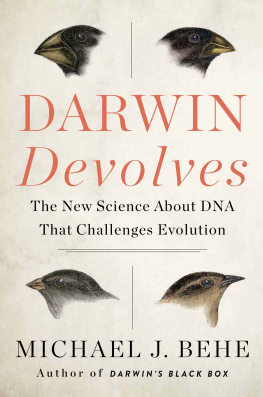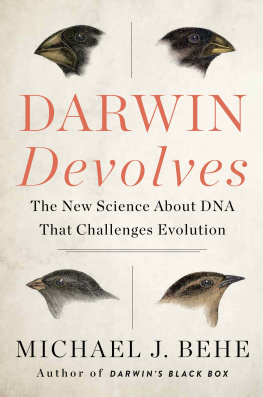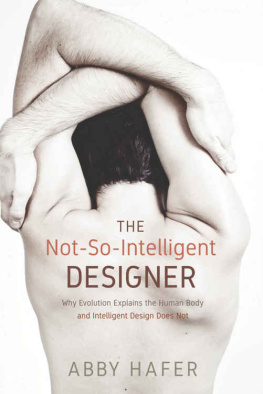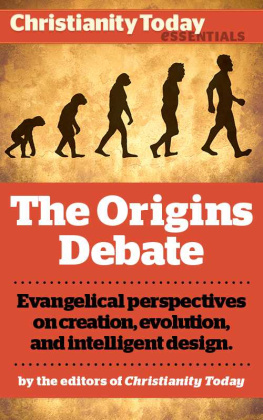Also by Michael Shermer

Science Friction: Where the Known Meets the Unknown
The Science of Good and Evil
In Darwins Shadow: The Life and Science of Alfred Russel Wallace
The Skeptic Encyclopedia of Pseudoscience (general editor)
The Borderlands of Science: Where Sense Meets Nonsense
Denying History
How We Believe: Science, Skepticism, and the Search for God
Why People Believe Weird Things
WHY DARWIN MATTERS

MICHAEL SHERMER

WHY DARWIN
MATTERS



Times Books
Henry Holt and Company, LLC
Publishers since 1866
175 Fifth Avenue
New York, New York 10010
www.henryholt.com
Henry Holt is a registered trademark of
Henry Holt and Company, LLC.
Copyright 2006 by Michael Shermer
All rights reserved.
Distributed in Canada by H. B. Fenn and Company Ltd.
For further information on the Skeptics Society and Skeptic magazine,
contact P.O. Box 338, Altadena, CA 91001, 626-794-3119;
fax: 626-794-1301; e-mail: skepticmag@aol.com.
www.skeptic.com
Library of Congress Cataloging-in-Publication Data
Shermer, Michael.
Why Darwin matters: the case against intelligent design / Michael Shermer.1st ed.
p. cm.
ISBN-13: 978-0-8050-8121-3
ISBN-10: 0-8050-8121-6
1. Evolution (Biology) 2. Intelligent design (Teleology) I. Title.
QH366.2.S54 2006 2006041243
576.8dc22
Henry Holt books are available for special promotions
and premiums. For details contact: Director, Special Markets.
First Edition 2006
Designed by Victoria Hartman
Printed in the United States of America
1 3 5 7 9 10 8 6 4 2
To Frank J. Sulloway
There aint naught a man cant bear if hell only be dogged.
Its dogged as does it.
In Darwins footsteps in all ways
There is grandeur in this view of life, with its several powers, having been originally breathed into a few forms or into one; and that, whilst this planet has gone cycling on according to the fixed law of gravity, from so simple a beginning endless forms most beautiful and most wonderful have been, and are being, evolved.
Charles Darwin, On the Origin of Species, 1859
CONTENTS

PROLOGUE

Why Evolution Matters
Hence both in space and time, we seem to be brought somewhat near to that great factthat mystery of mysteriesthe first appearance of new beings on this earth.
Charles Darwin, Journal of Researches, 1845
In June 2004, the science historian Frank Sulloway and I began a month-long expedition to retrace Charles Darwins footsteps in the Galpagos Islands. It turned out to be one of the most physically grueling experiences of my life, and as I have raced a bicycle across America five times, that is saying something special about what the young British naturalist was able to accomplish in 1835. Charles Darwin was not only one sagacious scientist; he was also one tenacious explorer.
I fully appreciated Darwins doggedness when we hit the stark and barren lava fields on the island of San Cristbal, the first place Darwin explored in the archipelago. With a sweltering equatorial sun and almost no fresh water, it is not long before water-loaded seventy-pound packs begin to buckle your knees and strain your back. Add hours of daily bushwhacking through dense, scratchy vegetation, and the romance of fieldwork quickly fades. At the end of one three-day excursion my water supply was so dangerously low that Frank and I collected the dew that had accumulated on the tents the night before. One day I sliced my left shin on a chunk of aa lava. Another day I was stung by a wasp and one side of my face nearly doubled in size. At the end of one particularly grueling climb through a moonscapelike area Darwin called the craterized district, we collapsed in utter exhaustion, muscles quivering and sweat pouring off our hands and faces, after which we read from Darwins diary, in which the naturalist described a similar excursion as a long walk.
Death permeates these islands. Animal carcasses are scattered everywhere. The vegetation is coarse and scrappy. Dried and shriveled cactus trunks dot the bleak landscape. The lava terrain is so broken with razor-sharp edges that progress across it is glacially slow. Many people have died there, from stranded sailors of centuries past to wanderlust-driven tourists in recent years. Within days I had a deep sense of isolation and fragility. Without the protective blanket of civilization none of us are far from death. With precious little water and even less edible foliage, organisms eke out a precarious living, their adaptations to this harsh environment selected over millions of years. A lifelong observer of and participant in the evolution-creation controversy, I was struck by how clear it is in these islands: Creation by intelligent design is absurd. So how then did Darwin depart the Galpagos a creationist?
This is the question that Frank Sulloway went there to answer. Sulloway has spent a lifetime reconstructing how Darwin pieced together the theory of evolution. The iconic myth is that Darwin became an evolutionist in the Galpagos, discovering natural selection as he itemized finch beaks and tortoise carapaces, as he observed how each species had uniquely adapted to the available food and the island ecology. The legend endures, Sulloway notes, because it fits elegantly into a Joseph Campbelllike tripartite myth of the hero who (1) leaves home on a great adventure, (2) endures immeasurable hardship in the quest for noble truths, and (3) returns to deliver a deep messagein Darwins case, evolution. The myth is ubiquitous, appearing in everything from biology textbooks to travel brochures, the latter of which inveigle potential customers to see what Darwin saw.
The Darwin Galpagos legend is emblematic of a broader myth that science proceeds by select eureka discoveries followed by sudden revolutionary revelations, as old theories fall before new facts. Not quite. Theories power perceptions. Nine months after departing the Galpagos, Darwin made the following entry in his ornithological catalogue about his mockingbird collection: When I see these Islands in sight of each other, & possessed of but a scanty stock of animals, tenanted by these birds, but slightly differing in structure & filling the same place in Nature, I must suspect they are only varieties. He was seeing similar varieties of fixed kinds, not an evolution of separate species. Darwin did not even bother to record the island locations of the few finches he collected (and in some cases mislabeled), and these now-famous birds were never specifically mentioned in the Origin of Species. Darwin was still a creationist.
Through careful analysis of Darwins notes and journals, Sulloway dates Darwins acceptance of evolution to the second week of March, 1837, after a meeting Darwin had with the eminent ornithologist John Gould, who had been studying Darwins Galpagos bird specimens. With access to museum ornithological collections from areas of South America that Darwin had not visited, Gould corrected a number of taxonomic errors Darwin had made (such as labeling two finch species a Wren and an Icterus), and pointed out to him that although the land birds in the Galpagos were endemic to the islands, they were notably South American in character.
Next page
